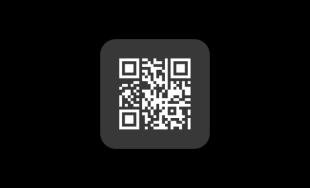Focus on your 'Menu' for tomorrow
“Freely distributed information that’s relevant to the person reading it. That’s web design.”
-Dan Cederholm
In describing his favorite website, Dribbble founder and designer Dan Cederholm highlights a flaw in the way the industry approaches creating websites.
I find it important to key in on the word 'relevant' in Dan's statement. His favorite site, at the time of his post, is a soups-of-the-day menu for a soup diner in his town created back in late 2007. The soup page is updated with the daily soup offerings, daily lunch specials, and an occasional notice about their holiday hours. It's easy to criticize the site's appearance and aesthetics as outdated, but you can't accuse the site of being irrelevant or inaccessible.
This Salem, MA diner has a direct form of communication with its customers. They're getting their message and information out better than other New England Soup Factory locations while using a free, hosted Wordpress solution for their site. The 'Soup of the Day' page can be dynamically updated, but it does lack the custom design and number of options the two other New England Soup Factory locations provide their patrons on a newer customized website. The Newton and Brookline, MA locations may have issues with their website that Salem have avoided.
- The Salem location is the top search result for 'New England Soup of the Day' on multiple search engines. I doubt there is a lot of search engine optimization work that goes into achieving that page rank, but utilizing Wordpress's built in tools when the site first launched has helped keep it number one. Persistent updates on the soup page since 2007 is pretty admirable, and also helped them with SEO. The other locations have daily updates for their soup menus, but the information is cramped between a generic menu description and the full menu.
- Salem's soup page renders perfectly in read-later services like Instpaper or Readability, which pull the main content from a page into a more readable format, and publishes an RSS feed. Read-later services and RSS readers work just like sandwich boards on a sidewalk or menus posted in the window: it doesn't require you to enter an establishment to see if the food sounds appetizing. More services and applications designed to consume content outside of the standard environment are going live with more regularity.
- If Tony Stark / Iron Man wasn't a fictional character and craved soup while in Massachusetts, his artificially intelligent assistant J.A.R.V.I.S. (Just A Rather Very Intelligent System) would direct him to the Salem N.E. Soup Factory location, in all likelihood. Those of us in the real world owning devices with an artificial intelligent personal assistant software (like Siri on iOS or Google Now on Android) will be able to do the same thing as functionality improves in the future. You'll never have to open an application or browser to discover the soup of the day since that content is accessible.
Information is now accessed across multiple media platforms, so a website is no longer a singular entity but a communications interface that must work in ways beyond viewing pages on the site. A website is a representation of you or your company in an information ecosystem. It's a proxy for your marketers, salesmen, pitchmen, fundraisers.
Anyone interacting with information from websites today should be looking through a window into your company. You don't know how the content on your site will be accessed going forward and as the number of options grow, the chances that window looks like shattered glass increases. Focusing on a minimal viable website solution allows the Salem New England Soup Factory to avoid more issues moving forward. Taking that same approach may allow you to sell a lot of your soup today and spend the rest of your time focusing on your menu for tomorrow.




Leave the first comment